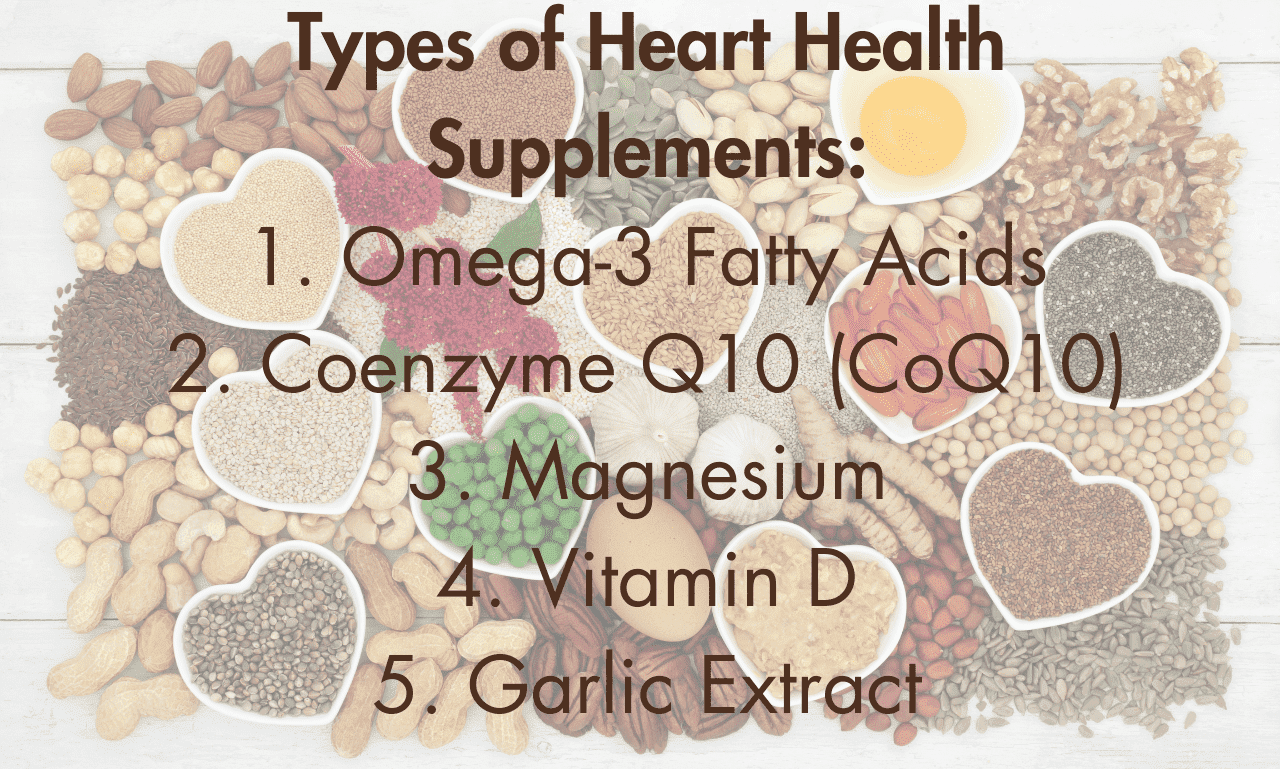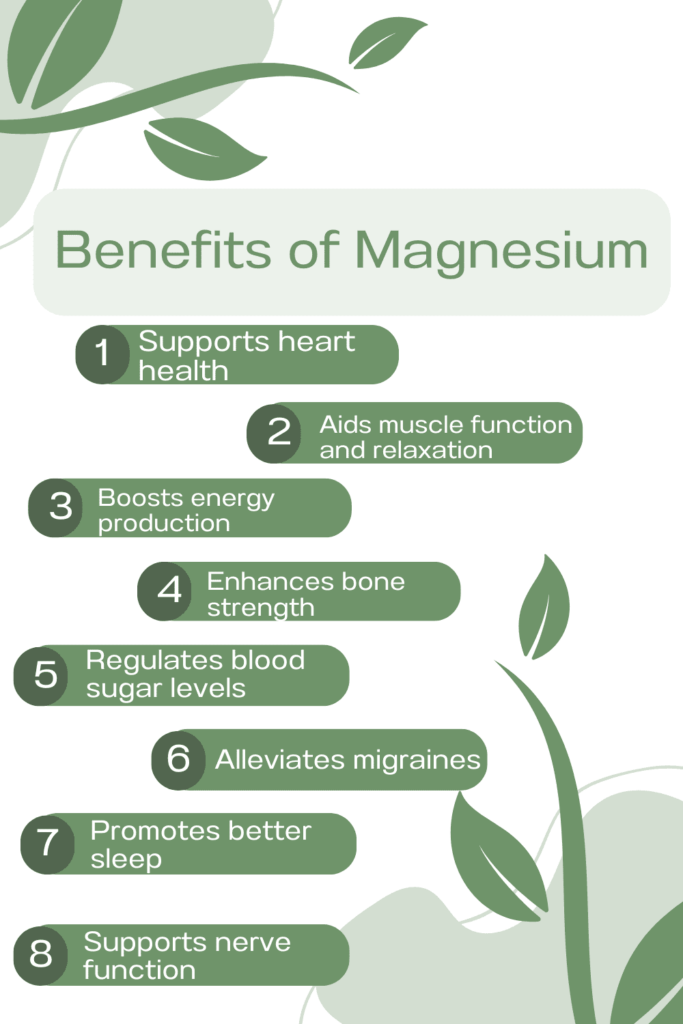In achieving overall well-being, the importance of cardiovascular health cannot be overstated, and heart health supplements emerge as helpful allies in this endeavor. These supplements, containing diverse nutritional elements, are carefully formulated to strengthen the cardiovascular system, reducing the effects of lifestyle factors and genetic predispositions. Essential ingredients such as omega-3 fatty acids, coenzyme Q10, magnesium, and various vitamins work synergistically to control cholesterol, reduce inflammation, and support optimal heart function. Incorporating these supplements into a holistic approach to health provides individuals with an active means of developing cardiovascular resilience. However, it is important for individuals to engage in informed discussions with health care professionals to tailor supplements to their unique health profiles, recognizing that these supplements A balanced diet, regular exercise, and comprehensive cardiovascular care are complementary.
This article explores the world of heart health supplements, their types, benefits, and considerations for incorporating them into a heart-healthy lifestyle.
Let us now explain each of the above topics in details.
1. Omega-3 Fatty Acids:
Omega-3 fatty acids are essential polyunsaturated fats that play an important role in maintaining optimal health, especially in the context of heart health. These fatty acids are divided into three main types: eicosapentaenoic acid (EPA), docosahexaenoic acid (DHA), and alpha-linolenic acid (ALA). While ALA is found primarily in plant sources such as flaxseed and walnuts, EPA and DHA are found primarily in fatty fish such as salmon, mackerel and sardines.
Research has consistently shown that omega-3 fatty acids offer a range of cardiovascular benefits, making them popular as heart health supplements.
Here’s a detailed look at the link between omega-3 fatty acids and heart health:
-
- Lowering triglycerides: Omega-3 fatty acids, especially EPA and DHA, have been shown to reduce elevated blood triglyceride levels. Elevated triglycerides are a risk factor for heart disease, and by lowering them, omega-3s play an important role in cardiovascular health.
- Lowering blood pressure: Studies show that omega-3 fatty acids can help lower blood pressure, promoting healthy cardiovascular function. It is especially beneficial for people with high blood pressure or those at risk of high blood pressure.
- Effects of inflammation: Chronic inflammation is a key factor in the development and progression of heart disease. Omega-3 fatty acids possess anti-inflammatory properties, which may help reduce inflammation in arteries and other cardiovascular tissues, potentially preventing atherosclerosis and related complications.
- Improving Cholesterol Levels: Omega-3s have been found to have a positive effect on cholesterol levels. They can increase high-density lipoprotein (HDL or “good” cholesterol) while lowering low-density lipoprotein (LDL or “bad” cholesterol), thereby improving the overall lipid profile.
- Prevention of Arrhythmias: Omega-3 fatty acids can help prevent abnormal heart rhythms or arrhythmias. These irregular heartbeats can be dangerous and contribute to the risk of sudden cardiac events.
- Enhancing endothelial function: The endothelium, the inner lining of blood vessels, plays an important role in regulating blood flow. Omega-3s contribute to better endothelial function, promote better circulation and reduce the risk of blood clots.
- Overall Cardiovascular Health Support: The combined effects of triglyceride reduction, blood pressure regulation, anti-inflammatory properties, cholesterol improvement, arrhythmia prevention, and increased endothelial function contribute to the overall cardiovascular health benefits of omega-3 fatty acids. .
Given the importance of omega-3 fatty acids in promoting heart health, supplements are often recommended for people who cannot get adequate amounts in their diet, especially those who regularly eat fatty fish. do not eat However, it is important to consult a healthcare professional before starting any supplement to ensure it is appropriate for individual health needs and conditions. Additionally, getting omega-3s through a balanced diet that includes fatty fish, flaxseeds, chia seeds, and walnuts is a great way to naturally support heart health.
2. Coenzyme Q10 (CoQ10):
Coenzyme Q10 (CoQ10) is a naturally occurring compound found in the cells of the body, specifically the mitochondria—the energy-producing centers of cells. It plays an important role in the production of adenosine triphosphate (ATP), the main source of energy for cellular activities. CoQ10 is also known for its potential benefits for heart health, and as a result, it is commonly used as a supplement in the context of cardiovascular wellness.
Here is a detailed study of CoQ10 and its effects on heart health supplements:
-
- Energy production in the heart: The heart is a highly energy-demanding organ, and CoQ10 is essential for the production of ATP, the cells’ energy currency. Adequate levels of CoQ10 are important for maintaining the energy the heart needs to pump blood efficiently.
- Antioxidant properties: CoQ10 also acts as an antioxidant, protecting cells, including heart cells, from oxidative damage caused by free radicals. Oxidative stress can contribute to the development and progression of cardiovascular disease, and CoQ10’s antioxidant properties help counteract this effect.
- Heart failure and CoQ10 deficiency: Research shows that people with heart failure may have low levels of CoQ10 in their heart tissue. CoQ10 supplementation has been researched as a potential treatment modality to increase energy production in the heart and reduce symptoms in people with heart failure.
- Blood pressure regulation: Some studies have indicated that CoQ10 may have a modest effect on blood pressure regulation. It is believed to improve the function of blood vessels and may play an important role in the management of high blood pressure, a major risk factor for heart disease.
- Improving endothelial function: CoQ10 has been linked to improved endothelial function, which is essential for maintaining healthy blood vessels. Improved endothelial function promotes better blood flow, reduces inflammation, and may contribute to overall cardiovascular health.
- Statins and CoQ10 deficiency: Some cholesterol-lowering drugs, such as statins, can decrease CoQ10 levels in the body. Because CoQ10 is so important for heart health, some people on statin medications may consider a supplement to prevent a possible deficiency.
- Anti-inflammatory Effects: CoQ10 exhibits anti-inflammatory properties, which may be beneficial in reducing inflammation in the cardiovascular system. Chronic inflammation is an important factor in the development of various heart conditions.
- Supplement Considerations: CoQ10 is available in supplement form, and is often recommended for people with heart disease, people taking statin drugs, or those experiencing symptoms of CoQ10 deficiency. have been. It is important to note that while CoQ10 supplements are generally considered safe, individuals should consult a healthcare provider before starting any supplement to determine proper dosage and ensure compatibility with existing medications or health conditions. A care professional should be consulted.
In summary, Coenzyme Q10 plays an important role in supporting heart health by contributing to energy production, acting as an antioxidant, and possibly influencing blood pressure regulation and endothelial function. Is. Although more research is needed to fully understand the extent of its benefits, CoQ10 supplementation is a topic of interest in the cardiovascular health field, and may be considered part of a holistic approach to heart care.
3. Magnesium:
Magnesium is an important mineral that plays an important role in many physiological processes within the body, including heart health. As an essential cofactor for various enzymes involved in energy metabolism, magnesium is essential for the proper functioning of the cardiovascular system. One of its primary contributions is its involvement in maintaining normal electrical activity of the heart, supporting proper rhythm and contraction. Magnesium helps regulate the balance of electrolytes, such as potassium and sodium, within cardiac cells, which are essential for maintaining a steady and efficient heartbeat.
Additionally, magnesium exhibits vasodilatory effects, helping to relax blood vessels and thus help control blood pressure. Adequate magnesium levels are associated with improved endothelial function, reducing the risk of atherosclerosis and promoting healthy blood vessel walls. Additionally, magnesium is recognized for its anti-inflammatory properties, which are important in reducing chronic inflammation – a key factor in the development and progression of cardiovascular disease. It plays a role in preventing platelet aggregation and blood clot formation, further contributing to its cardiovascular protective effects. Importantly, magnesium works synergistically with other minerals such as calcium and potassium to maintain a delicate balance between contraction and relaxation of the heart muscle, ensuring proper cardiovascular function.
Given magnesium’s multifaceted effects on heart health, it is often considered a valuable supplement for individuals looking to support their cardiovascular well-being. Although magnesium is found in a variety of foods, such as leafy green vegetables, nuts, seeds, and whole grains, supplementation may be warranted for individuals with magnesium deficiency or certain health conditions. However, it is very important to consult a healthcare professional before starting magnesium supplementation, as excessive consumption can lead to adverse effects. Maintaining the right balance of magnesium through diet or supplements can be an active step in promoting heart health and reducing the risk of cardiovascular disease.
4. Vitamin D:
Vitamin D is a fat-soluble vitamin that plays an important role in various physiological functions within the body. Although its best-known function is promoting calcium absorption and maintaining bone health, emerging research has highlighted its importance in cardiovascular health. The role of vitamin D in heart health is multifaceted, and it affects various aspects of cardiovascular function.
Here are some important points regarding the connection between vitamin D and heart health:
Vitamin D plays an important role in controlling blood pressure. It helps maintain the balance of minerals like calcium and phosphorus, which are essential for the proper functioning of blood vessels. Adequate levels of vitamin D are associated with a reduced risk of high blood pressure, a condition that significantly contributes to cardiovascular disease.
Chronic inflammation is an important factor in the development of heart diseases. Vitamin D has anti-inflammatory properties, which may help reduce inflammation in the cardiovascular system. By modulating the immune response, vitamin D may contribute to a healthy heart.
Vitamin D is believed to have a positive effect on vascular health. This can affect endothelial function, an important aspect of blood vessel health. By promoting proper blood flow and reducing the risk of atherosclerosis (hardening of the arteries), vitamin D supports overall cardiovascular well-being.
Vitamin D receptors are present in cardiac muscle cells, indicating a direct role in cardiac function. Studies show that maintaining optimal vitamin D levels is essential for the integrity and function of the heart muscle, which contributes to overall heart health.
Vitamin D is central to the regulation of calcium homeostasis. This ensures that calcium is properly absorbed and used in the body, a process important for the contraction and relaxation of the heart muscle. Proper calcium balance is fundamental to maintaining a healthy cardiovascular system.
Observational studies have shown a link between low levels of vitamin D and an increased risk of cardiovascular events such as heart attack and stroke. Although more research is needed to establish a clear causal relationship, these findings suggest that maintaining adequate vitamin D intake may help reduce the risk of major cardiovascular events.
Vitamin D deficiency has been linked to an increased risk of developing type 2 diabetes, a major risk factor for cardiovascular disease. By helping to manage diabetes, vitamin D indirectly contributes to cardiovascular health, emphasizing the interconnectedness of various aspects of metabolic health.
Some research suggests that optimal levels of vitamin D can have a positive effect on the lipid profile. This includes lowering triglyceride levels and increasing high-density lipoprotein (HDL or “good” cholesterol), both of which contribute to a healthier cardiovascular profile.
Although the relationship between vitamin D and heart health is complex and multifaceted, maintaining adequate levels of this essential vitamin appears to be beneficial for various aspects of cardiovascular function. However, individual needs may vary, and it is advisable to consult a healthcare professional for personal guidance on vitamin D intake and supplementation. Always try a balanced approach to support overall heart health, incorporating sunlight exposure, dietary sources, and supplements if necessary.
5. Garlic Extract:
Garlic plays a significant role in promoting heart health through a spectrum of beneficial effects. Allicin, its active compound, plays an important role in cardiovascular well-being. The vasodilatory effects of garlic help regulate blood pressure by relaxing blood vessels, potentially reducing the risk of high blood pressure. Additionally, garlic has been associated with lowering LDL cholesterol levels, which is an important factor in preventing atherosclerosis. Its anti-inflammatory and antioxidant properties are important for reducing oxidative stress and inflammation, which are primary contributors to various cardiovascular diseases. Garlic’s positive effect on endothelial function enhances blood vessel health, and its potential anticoagulant effects may prevent excessive blood clotting. Additionally, garlic can reduce the stiffness of arteries and help regulate blood sugar levels, providing comprehensive support for the cardiovascular system. Adding garlic to a balanced diet emerges as a practical and accessible strategy for individuals aiming to maintain heart health. However, as with any dietary intervention, it is advisable to consult a health care professional, especially for those with certain health conditions or taking medications.
Conclusion:
Finally, heart health supplements play an important role in cardiovascular well-being by providing essential nutrients that can be difficult to obtain through diet alone. From omega-3 fatty acids, known for their anti-inflammatory and cholesterol-lowering effects, to Coenzyme Q10, which supports energy production in heart cells, these supplements help maintain heart health. offer a complementary approach to Additionally, vitamin D, garlic, and other supplements exhibit various cardiovascular benefits, including blood pressure regulation, anti-inflammatory properties, and cholesterol management. While these supplements may be valuable to some individuals, it is important to recognize that they should not replace a balanced diet and healthy lifestyle. The efficacy of supplements may vary, and individual needs vary, emphasizing the importance of consulting a health care professional before incorporating them into a regimen, especially for those with Those who have existing medical conditions or are taking medications. Ultimately, a holistic approach, a nutritious diet, regular physical activity, and personalized health care guidance, is the key to improving heart health.
Remember, while some supplements may offer limited benefits, focusing on a healthy lifestyle and addressing potential risk factors through diet, exercise, and appropriate medical care is crucial for a strong and healthy heart. Prioritize evidence-based strategies and consult your doctor before taking any supplements to ensure safety and optimize your overall health.
FAQs about Heart Health Supplements:
Q: Can supplements really improve my heart health?
A: Some supplements like omega-3 fatty acids, CoQ10, and magnesium may offer limited benefits under specific conditions. However, a healthy diet and lifestyle are the foundation for good heart health.
Q: Should I replace medication with supplements?
Absolutely not! Always consult your doctor before taking any supplements, especially if you have existing health conditions or take medications. Supplements can interact with medications or have unforeseen side effects.
Q: What about omega-3 fatty acids?
A: They may help lower triglycerides and blood pressure, but focus on getting them from fatty fish like salmon and tuna before considering supplements.
Q: Is CoQ10 worth taking?
A: Evidence for its direct benefit on heart health is mixed. Talk to your doctor if you have heart failure or are taking statins, as CoQ10 may interact.
Q: Can magnesium improve heart health?
A: Magnesium deficiency can contribute to high blood pressure. Ask your doctor if a supplement is right for you, as high doses can have negative effects.
Q: Are heart health supplements safe?
A: Not all supplements are well-regulated. Choose reputable brands and check for potential interactions with your medications or pre-existing conditions.
Q: Can supplements overdose you?
Yes! Follow recommended dosages and don’t assume “natural” equals harmless. High doses of some supplements can cause serious side effects.
Q: How can I be sure supplements are effective?
Research is ongoing, and evidence for many supplements is limited or inconclusive. Rely on a balanced diet, exercise, and proven lifestyle changes for optimal heart health.
Q: Where can I get reliable information about heart health supplements?
A: Consult your doctor, registered dietitian, or pharmacist for personalized advice. Check authoritative sources like the National Institutes of Health (NIH) and American Heart Association for updated research and safety information.
Q: Are there alternatives to supplements for improving heart health?
Absolutely! Prioritize a healthy diet rich in fruits, vegetables, whole grains, and lean protein. Regular exercise, stress management, and good sleep habits are all key to protecting your heart.







